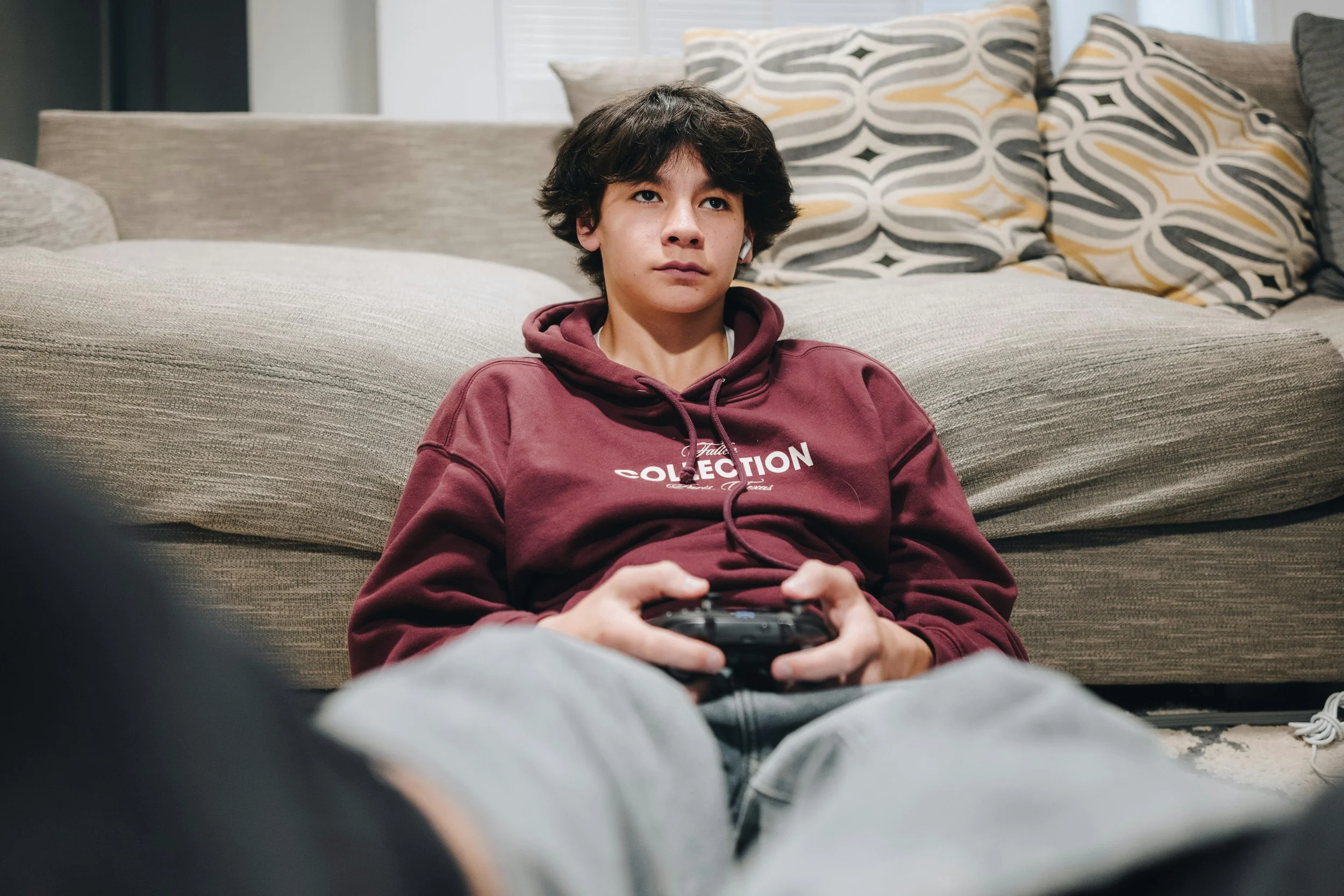From Controller to Confidence: How Excessive Gaming Undermines Your Child’s Jiu-Jitsu Progress
While training is a big piece of that puzzle, what happens outside the academy matters just as much. One of the most common—and often overlooked—obstacles we see in young athletes today is excessive video gaming. When not kept in check, screen time can directly undermine a child’s physical, emotional, and mental development—and stall their journey in martial arts.
The Real Cost of Too Much Gaming
Gaming in moderation can be a fun break or a way to unwind. But too many hours behind a screen come with real consequences, especially for developing athletes.
🧠 Mental Fatigue and Focus IssuesExcessive gaming overloads the brain’s dopamine system, reducing motivation and focus. The more instant gratification a child gets from games, the less tolerant they become of the slower, more disciplined rewards of Jiu-Jitsu.
“When kids are exposed to too much fast-paced digital stimulation, they can lose interest in activities that require sustained effort and patience.”
— Dr. Victoria Dunckley, child psychiatrist
💤 Sleep DisruptionGaming late into the evening has been shown to disrupt sleep patterns. A tired athlete is a distracted, sluggish, and unmotivated one on the mats.
🏃♂️ Decline in Physical FitnessHours sitting at a screen are hours not spent moving, stretching, building endurance, or honing coordination—essential ingredients for Jiu-Jitsu success.
🧘 Reduced Emotional ResilienceGaming environments often promote short tempers, quick resets, and zero consequences. Jiu-Jitsu teaches the opposite: perseverance, patience, and problem-solving under pressure.
If a child is struggling with poor performance or lack of progress in Jiu-Jitsu, excessive gaming might not be the only reason—but it’s likely part of the equation.
Signs That Gaming Is Hurting Their Progress
Here’s what we often see on the mats when gaming becomes a problem:
They’re distracted and struggle to follow instruction
They fatigue faster and don’t want to drill
They lose emotional control when things don’t go their way
Their performance has plateaued—or declined
They’re not excited to come to training anymore
If that sounds familiar, it may be time to examine how much time they’re spending on a console, tablet, or phone.
It’s Not About Elimination—It’s About Balance
We're not advocating that kids never touch a game controller. Gaming can be social, fun, and even educational when managed properly. The key is teaching balance, discipline, and awareness—just like we do in Jiu-Jitsu.
Here’s how to strike that balance:
✅ Set Clear LimitsMost experts recommend no more than 1–2 hours of recreational screen time per day for school-age children. The rest of their time should involve movement, creativity, or meaningful downtime.
✅ Use Gaming as a Reward, Not a RightTie gaming privileges to effort in training, schoolwork, or helping out at home.
✅ Create Screen-Free Zones and TimesNo gaming before training. No devices at the dinner table. No screens in the bedroom at night.
✅ Make Rest and Recovery a PriorityReplace late-night gaming with stretching, reading, or winding down. Sleep is when growth happens—mentally and physically.
The Jiu-Jitsu Mindset vs. The Gamer Mindset
Jiu-Jitsu teaches that rewards come slowly, through effort, struggle, and resilience. The gamer mindset—when unbalanced—often creates the opposite: impulsivity, low frustration tolerance, and a craving for instant results.
By helping your child shift their habits from virtual victories to real-life progress, you’re not just improving their performance—you’re strengthening their character.
Final Thoughts: Swap the Screen for the Gi
As parents, we all want what’s best for our kids. And sometimes, that means making hard calls—limiting the things they want in order to help them pursue what they’re capable of achieving.
At The Agoge Project, we believe greatness isn’t built in tournaments or titles. It’s built in habits. If you want to see your child thrive in Jiu-Jitsu—and in life—start by protecting the one thing they can’t replace:
Their time.



